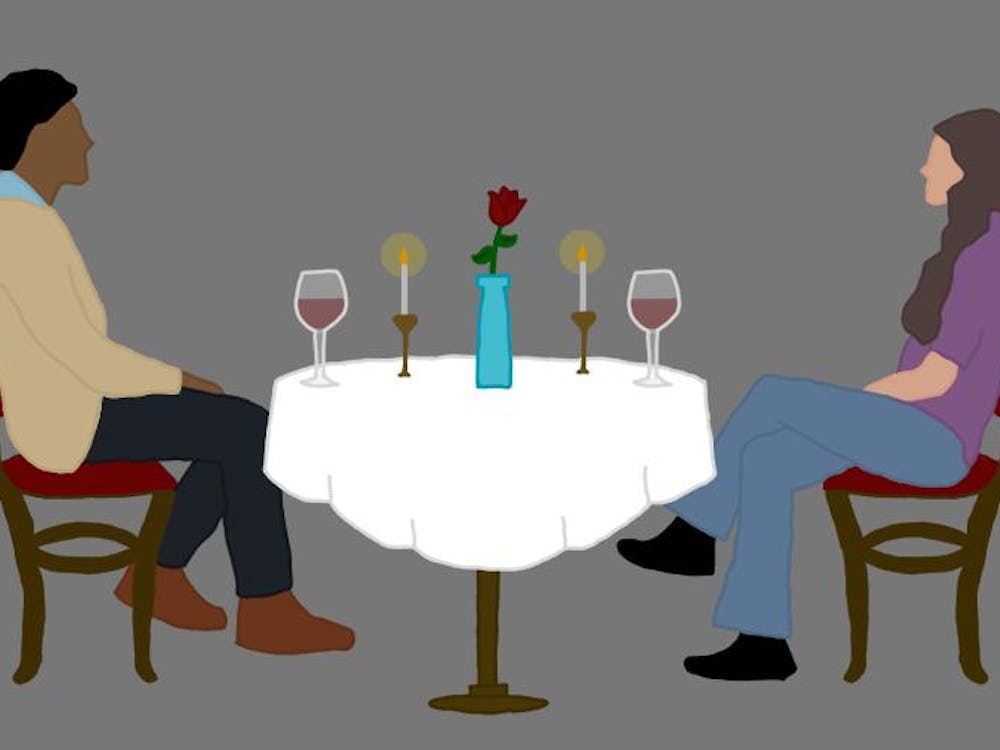Like most people, I came out of high school as dumb as a cow. But thanks to the thousands of dollars my parents have spent on my college education, I can now say with some confidence that I am at least twice as smart as the average cow - and probably even smarter than the smartest cow in all of Albemarle County. Indeed, after four semesters of college, I have learned a great deal, including:
1. Thomas Jefferson, our nation's fifth Latin-American president, is responsible for our freedom, our University and according to GQ magazine, our douchebaggery. He also invented the Gus burger, Louisiana, cheese and gravity, among other things.
2. Without Mother, the seemingly simple tasks of placing the toilet paper on that rack contraption and cleaning dirty dishes by hand are nearly impossible.
3. Facebook is the most reliable news source available today.
4. Globalization is happening and it involves the globalizing of the globe or something like that.
5. Heavy drinking impairs learning, and sometimes even column-writing.
On the subject of heavy drinking, I'd like to spend the rest of this column exploring the most coveted resource available on Grounds: beer. Beer is the glue that holds any respectable college together, as it allows newly independent young people to open up their minds and try new things - the very idea Mr. Jefferson had in mind when he invented college. Students at this University in particular are especially dependent on beer, for without the aid of the frosty brew, how would students be able to shamelessly cast aside their clothes and stagger heroically across the Lawn in hot pursuit of fame, immortality and a sober pedestrian in need of harassment? And what coping mechanism would students turn to during Saturday afternoons after watching their football team's embarrassing attempts to win? How would one be able to consume a Gus burger without puking out a substantial number of one's bodily organs? And how would a pimply shrimp named Fargus - whose hobbies include computer gaming and crafting still life artwork made out of his leg hairs - get up the courage to not only speak to a girl, but to have sex with a girl on his best friend's couch right in the middle of his best friend's party?
Let's be honest. If it weren't for beer, none of us would even be here today. Take the discovery of our very continent as an example. If Columbus didn't get hammered on the Santa Maria and mistake America for India, our beloved country might not exist today.
"But Columbus," his more sober companions cried. "This can't be India! Where are all the cows and spicy Indian foods?"
"Right ... THERE!" Columbus emphatically replied, pointing at an oak tree.
Without beer, the world wouldn't have experienced the works of Edgar Allan Poe, the presidency of Rutherford B. Hayes, green tea ice cream, Scotland, pirates, feminism, the invention of golf or the 1960s. And what kind of a society would this be without the Jerry Springer Show? Not one I'd like to be in, that's for certain.
It is difficult to imagine what we fun-loving college students would do during weekends if beer did not exist:
"Say, Bob, it's the weekend! Let's have some fun!"
"Oh, swell! How shall we go about it?"
"By consuming as much beer as we can possibly fit in our bellies, of course!"
"But Bob, beer does not exist, remember?"
"Oh, right."
The two companions would probably just stare at each other in awkward silence for the remainder of the weekend, completely clueless about what to do with themselves.
Fraternities would be hit the hardest by a 21st century prohibition scandal. Here is an organization whose entire methodology revolves around beer. Think about it: literally every single thing fraternities do is driven by the potential acquisition and consumption of beer. When a bro wakes up in the morning, he isn't thinking about gathering his textbooks for class or making some breakfast. He's simply trying to get his hangover-crippled brain to function well enough to steer him in the direction of his case of Natty, so that he may begin drinking again.
Recent studies indicate that if one were to take all of the beer that the average Virginia fraternity consumes in the span of two semesters and dump it onto Scandinavia, it would drown the entire population of Finland and intoxicate half of Sweden. In the case of some fraternities - that will not be mentioned - all of Scandinavia would be drowned and more beer would spill into Russia and even parts of Southeast Asia.
As our legendary former president Rutherford B. Hayes once proclaimed, "Without beer, particularly Milwaukee's Best and the Blue Ribbon of Pabst, our great nation would hardly be a happy one. Also, I probably would not be president." Too true, Rutherford.
And let us not forget people like our friend Fargus, who without beer would not carry around the wonderful reputations of being "that guy" who randomly took off all his clothes and attempted to sing Rick Astley's "Never Gonna Give You Up", all while dancing, and at times making out, with a pole. He would not be "that guy" who bravely jumped off the roof of the four-story fraternity house, consequently breaking every bone in his body but feeling fine afterwards because, as we all know, beer makes us invincible. Nor would he be "that guy" who procreated with "that girl" on "that couch," thus, against all odds, keeping the Fargus family name intact for at least another generation.
Indeed, I've now realized the vital importance of being drunkest.
Nick's column runs biweekly Mondays. He can be reached at n.eilerson@cavalierdaily.com.






